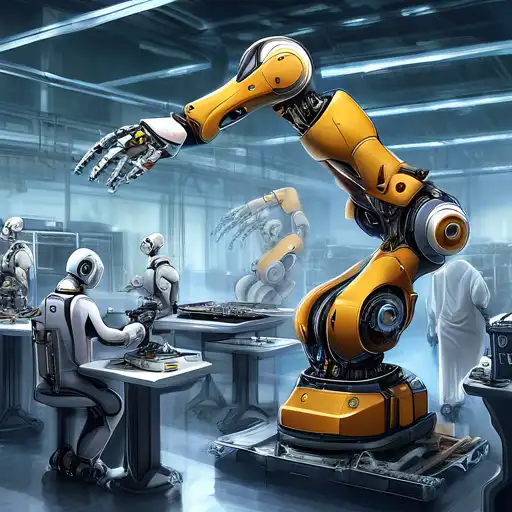The Revolutionary Impact of Robotics on Modern Manufacturing
In the heart of the industrial revolution, the introduction of robotics into manufacturing processes has marked a pivotal shift towards efficiency, precision, and scalability. This transformation is not just about replacing human labor but enhancing capabilities, reducing errors, and opening new avenues for innovation.
Enhancing Efficiency and Productivity
Robotics in manufacturing has significantly increased production rates while maintaining high-quality standards. Automated robots work tirelessly, 24/7, without the need for breaks, drastically reducing production times and increasing output. This relentless efficiency is a game-changer for industries aiming to meet the growing global demand.
Precision and Quality Control
One of the most notable benefits of robotics is their unparalleled precision. Robots are capable of performing complex tasks with exacting accuracy, minimizing waste and ensuring that every product meets strict quality standards. This level of precision is particularly crucial in industries such as aerospace and electronics, where even the smallest error can have significant consequences.
Scalability and Flexibility
Modern robotic systems are designed to be highly adaptable, allowing manufacturers to quickly adjust production lines for different products. This flexibility is essential in today's fast-paced market, where consumer preferences and demands can change rapidly. Robotics enables manufacturers to scale operations up or down with minimal downtime, ensuring they remain competitive.
Reducing Workplace Injuries
By taking over dangerous and repetitive tasks, robots have significantly reduced the number of workplace injuries in manufacturing environments. This not only ensures a safer workplace but also reduces costs associated with worker compensation and downtime due to injuries.
The Future of Manufacturing with Robotics
As technology continues to advance, the role of robotics in manufacturing is set to grow even further. Innovations such as AI and machine learning are making robots smarter and more autonomous, enabling them to make decisions and learn from their experiences. This evolution promises to unlock new levels of efficiency and creativity in manufacturing processes.
For those interested in the intersection of technology and manufacturing, exploring the latest trends in automation and artificial intelligence can provide deeper insights into the future of the industry.
In conclusion, the integration of robotics into manufacturing is transforming the industry in unprecedented ways. From enhancing productivity and precision to improving workplace safety and enabling scalability, the benefits are clear. As we look to the future, the continued evolution of robotics promises to further revolutionize manufacturing, making it more efficient, flexible, and innovative than ever before.
